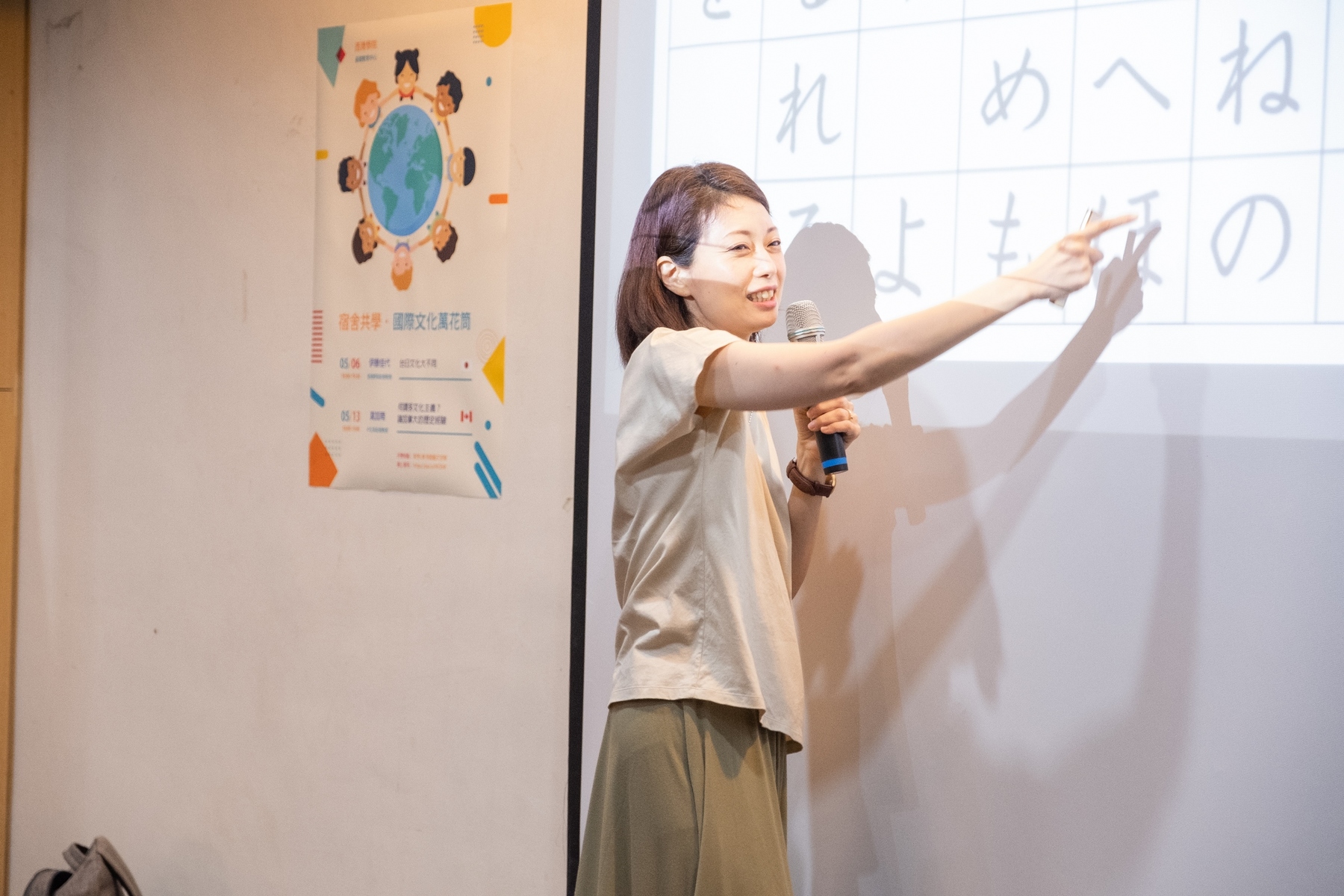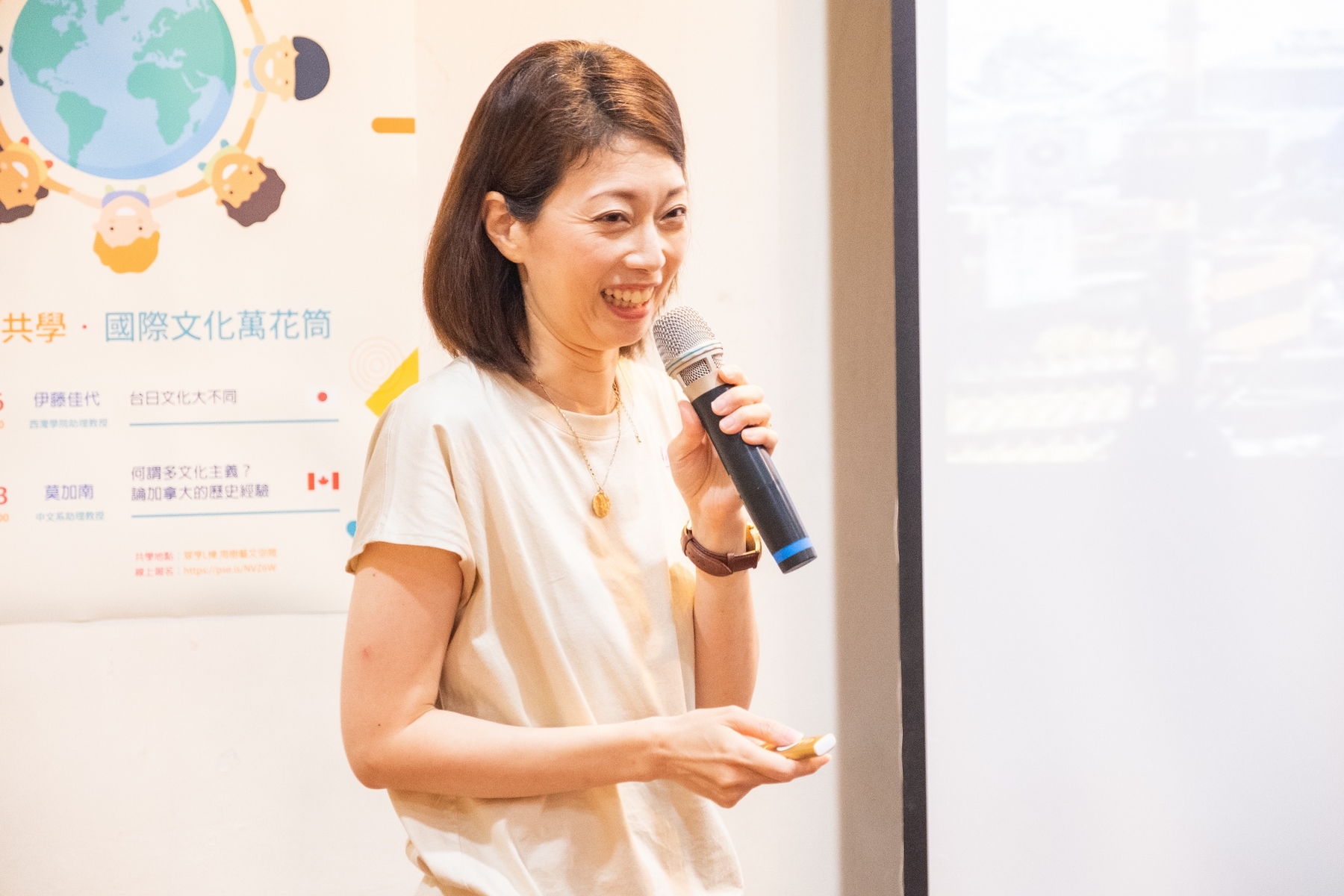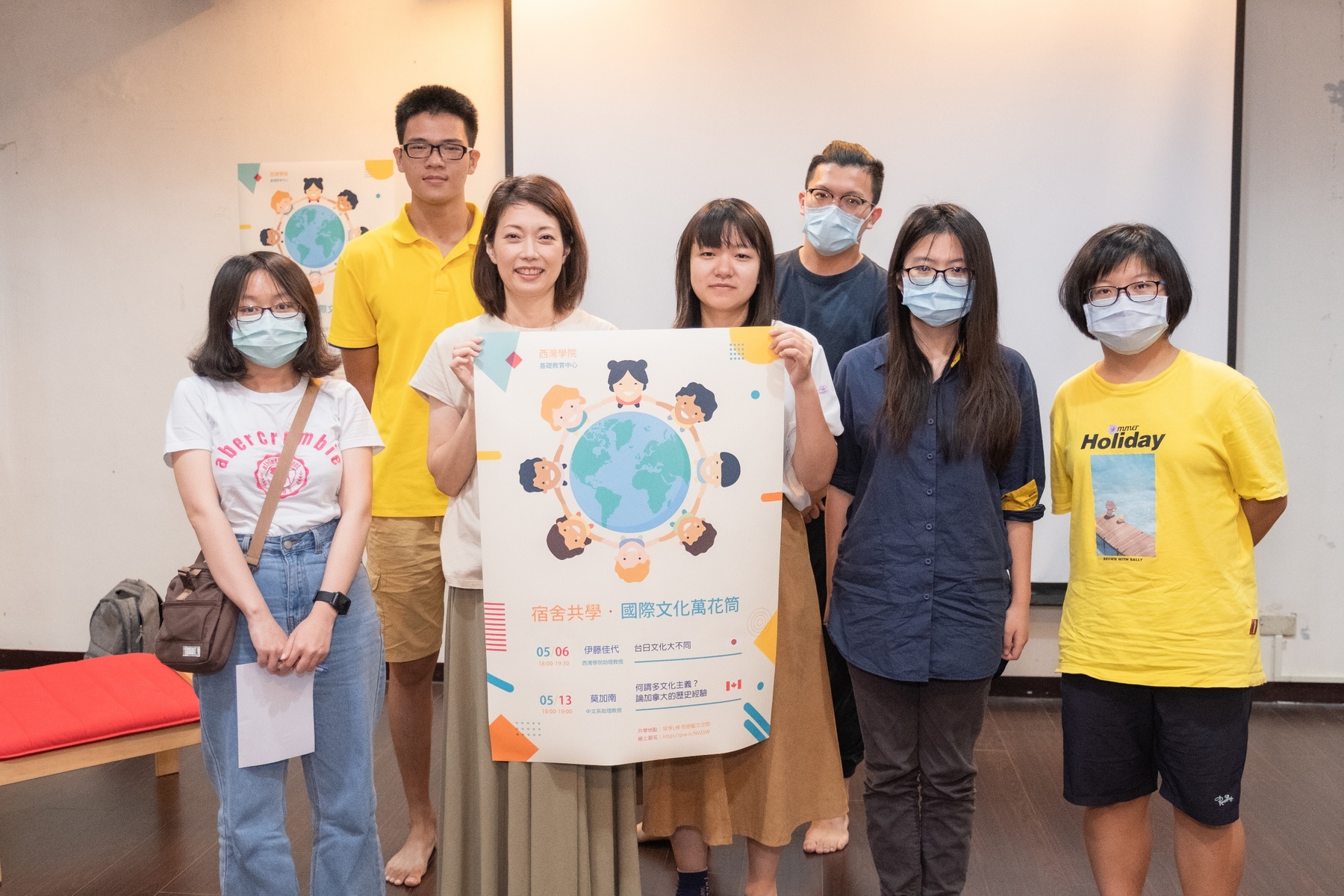Assistant Professor Kayo Ito gives a lecture on cultural differences between Taiwan and Japan



(Report by student journalist) How different is the life of a university student in Taiwan and Japan? Assistant Professor Kayo Ito of the Si-Wan College gave a lecture on the “Cultural differences between Taiwan and Japan” to share her view on the culture of Taiwan and Japan, the different customs, and provide information and advice to students who want to try living in Japan. The lecture was part of a series of lectures at National Sun Yat-sen University: Co-Working at Dorms.
Assistant Professor Kayo has lived in Taiwan for over ten years. She shared her view on the atmosphere of Taiwanese and Japanese universities and gave some details the students should note. She discovered that students in Taiwan have a lot of opportunities to work part-time at the university, whereas in Japan, it is unthinkable. Because culturally the Japanese people highly value privacy and are very careful when doing things, the students in Japan do not work at university nor do the professors have an assistant – they normally take care of all the matters concerning their course. Lessons at Japanese universities are also pretty long and the study atmosphere is rather stiff, which the international students might find hard to adapt to. Many students have high expectations about studying in Japan and unfortunately many end up disappointed, says Assistant Professor Kayo. She said that in the past, many of her students went to Japan and returned, having experienced a severe culture clash. Besides collecting information, one should also prepare mentally for such an experience, she advised. However, Assistant Professor Kayo encouraged everybody to gain the experience of living abroad to work or study, whether in Japan or other countries.
In addition, Japan differs from Taiwan in several everyday customs; it is important to learn about etiquette in Japan. Assistant Professor Kayo Ito mentioned one example. The Taiwanese like to eat ice cream while walking on the street - it is a way of enjoying oneself, whereas it is seen as rude and disrespectful in Japan; unfortunately many tourists unconsciously commit this cultural mistake. Other customs in Japan include: staying silent on public transport, avoiding keeping elbows on the table, and properly arranging chopsticks. Many people new to Japan commit these cultural mistakes. Although you might not be accustomed to doing so, “when in Rome, do as the Romans do”; compassion and respect are very important.
Everybody looks at the world through their own glasses but we need to bear in mind that a culture is neither right nor wrong, neither good nor bad. Assistant Professor Kayo said that when two people from different backgrounds meet, the most important thing is mutual understanding and respect. Student of the fourth year of the Department of Chinese Literature Ya Lu said that the lecture was much more relaxed than a regular class and provided students with a more in-depth knowledge of cultural differences between Taiwan and Japan. She couldn’t wait to attend similar lectures to learn more about different countries.
(Edited by Public Affairs Division)
Assistant Professor Kayo has lived in Taiwan for over ten years. She shared her view on the atmosphere of Taiwanese and Japanese universities and gave some details the students should note. She discovered that students in Taiwan have a lot of opportunities to work part-time at the university, whereas in Japan, it is unthinkable. Because culturally the Japanese people highly value privacy and are very careful when doing things, the students in Japan do not work at university nor do the professors have an assistant – they normally take care of all the matters concerning their course. Lessons at Japanese universities are also pretty long and the study atmosphere is rather stiff, which the international students might find hard to adapt to. Many students have high expectations about studying in Japan and unfortunately many end up disappointed, says Assistant Professor Kayo. She said that in the past, many of her students went to Japan and returned, having experienced a severe culture clash. Besides collecting information, one should also prepare mentally for such an experience, she advised. However, Assistant Professor Kayo encouraged everybody to gain the experience of living abroad to work or study, whether in Japan or other countries.
In addition, Japan differs from Taiwan in several everyday customs; it is important to learn about etiquette in Japan. Assistant Professor Kayo Ito mentioned one example. The Taiwanese like to eat ice cream while walking on the street - it is a way of enjoying oneself, whereas it is seen as rude and disrespectful in Japan; unfortunately many tourists unconsciously commit this cultural mistake. Other customs in Japan include: staying silent on public transport, avoiding keeping elbows on the table, and properly arranging chopsticks. Many people new to Japan commit these cultural mistakes. Although you might not be accustomed to doing so, “when in Rome, do as the Romans do”; compassion and respect are very important.
Everybody looks at the world through their own glasses but we need to bear in mind that a culture is neither right nor wrong, neither good nor bad. Assistant Professor Kayo said that when two people from different backgrounds meet, the most important thing is mutual understanding and respect. Student of the fourth year of the Department of Chinese Literature Ya Lu said that the lecture was much more relaxed than a regular class and provided students with a more in-depth knowledge of cultural differences between Taiwan and Japan. She couldn’t wait to attend similar lectures to learn more about different countries.
(Edited by Public Affairs Division)
Click Num:
Share
